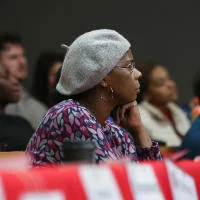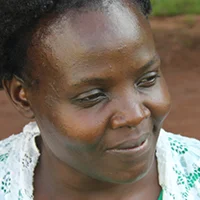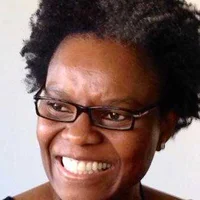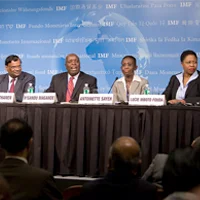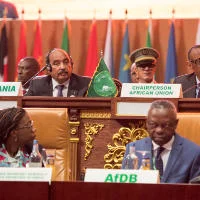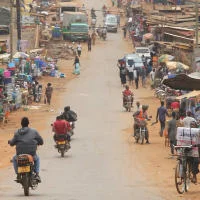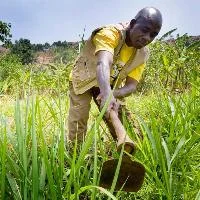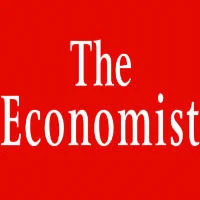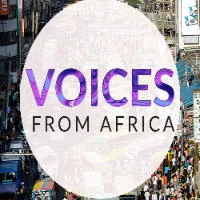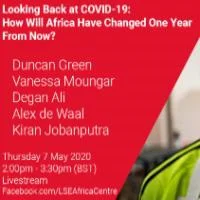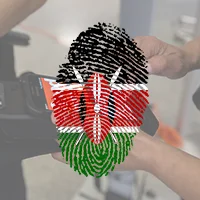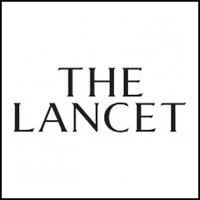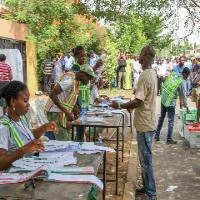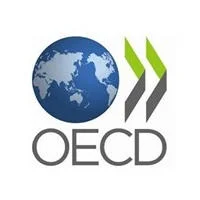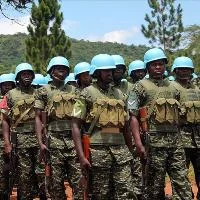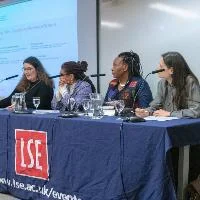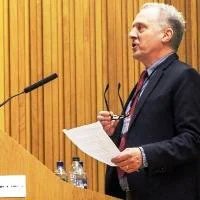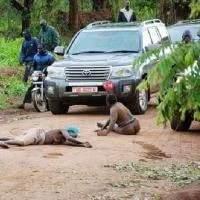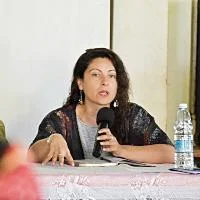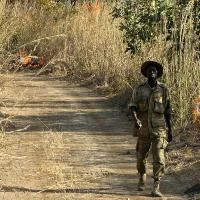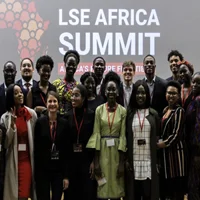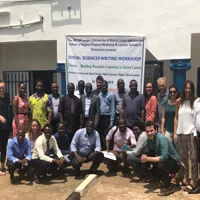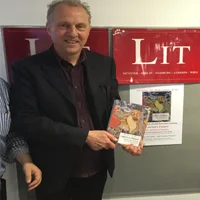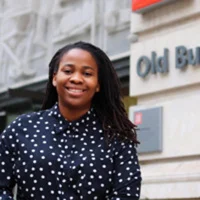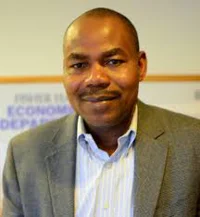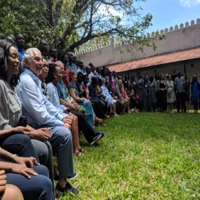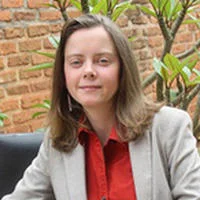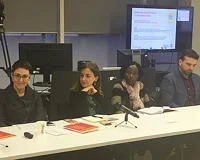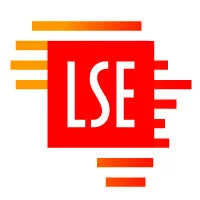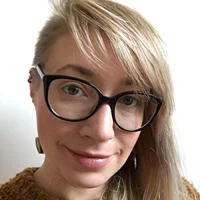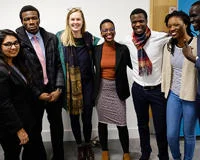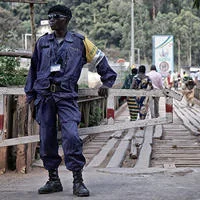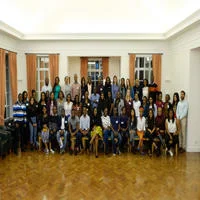News
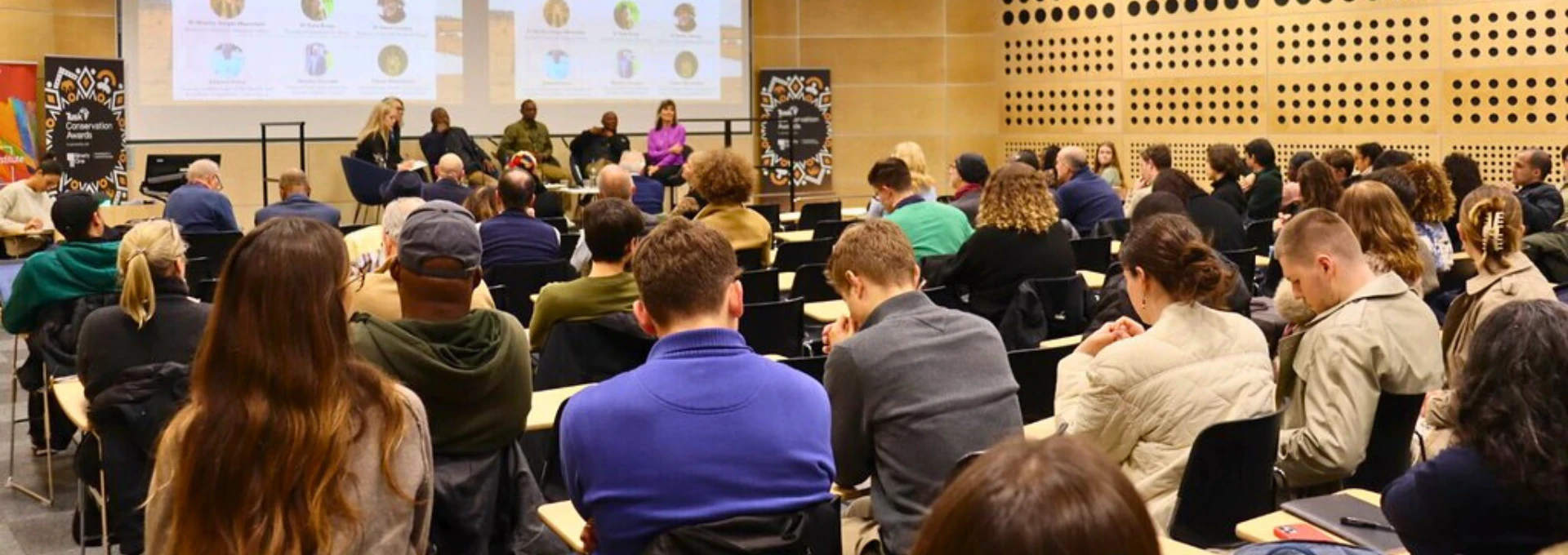
Updates from the Firoz Lalji Institute for Africa

The Channels Media Group and FLIA have launched the second season of their groundbreaking youth- centred podcast tagged ‘The Climb Podcast’, and for this new season, UNICEF Nigeria has joined the podcast production team as a collaborating partner.
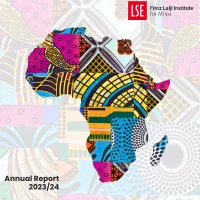
Read the 2023-24 FLIA Annual Report
The Firoz Lalji Institute for Africa has published its 2023-2024 annual report, highlighting key initiatives and accomplishments. This year marked significant progress in expanding African research and engagement, particularly with the establishment of the Hub for African Thought and the new Creatives in Residence Program. FLIA continues to foster partnerships with major institutions and governments, hosting notable African leaders and advancing interdisciplinary research on governance, climate change, and public health.
Read the report here!

New Article: Witnessing Ongwen: A Betrayal of Expectations?
New open access paper by Jacqueline Atingo, Tim Allen and Anna Macdonald examining the experiences of LRA commander Dominic Ongwen’s forced ‘wives’ as they testified for both the prosecution and defence during his trial at the International Criminal Court.
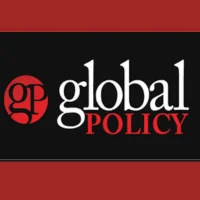
Special Issue: Development Practice, Power and Public Authority
Drawing upon research across multiple countries, the articles in this special issue explore how public authority dynamics affect development and humanitarian practice. Some focus on places in crisis, others examine everyday governance in more stable contexts.

Recognition: Dr Robtel Neajai Pailey as the orator for this year’s Independence Day commemoration
The Government of Liberia has announced Dr Robtel Neajai Pailey as the orator for this year’s Independence Day commemoration.
Dr Pailey is a native of Liberia. She holds a PhD in Development Studies from the School of Oriental and African Studies of the University of London, United Kingdom.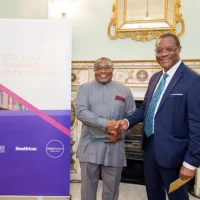
Award: How Africa Trades by Professor David Luke wins BCA African Business Book of the Year
David Luke, Professor in Practice and Strategic Director at the Firoz Lalji Institute for Africa at the LSE, wins the prestigious award for his book How Africa Trades at the BCA African Business Book of the Year Awards.
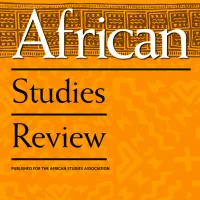
New article: Collaborative Autoethnography and Reclaiming an African Episteme: Investigating "Customary" Ownership of Natural Resources
The article discusses how collaborative autoethnography can function as a means of reclaiming certain African realities that have been co-opted by colonial epistemes and language. This can be significant in very concrete ways: northern Uganda is suffering a catastrophic loss of tree cover, much of which is taking place on the collective family landholdings that academia and the development sector have categorized as "customary land." A collaboration by ten members of such landholding families, known as the Acholi Land Lab, explores what "customary ownership" means to them and their relatives, with a view to understanding what may be involved in promoting sustainable domestic use of natural resources, including trees.
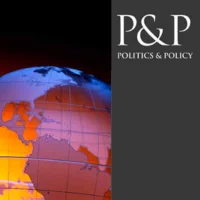
New article: DHR-PA—Democracy and human rights in publicadministration in Africa
New article by Gedion Onyango published in the Politcs and Policy Journal. This article's Democracy and Human Rights in Public Administration (DHR-PA) perspective offers a view that a human rights-anchored reforms agenda may assist with setting the much-needed tone for realizing democratic norms in African administrative contexts where society is still dealing with extreme forms of human rights abuses. It operationalizes institutional nuances and qualities of democratic and human rights values using Afrobarometer's Round 9 dataset for Namibia, Kenya, and Nigeria.
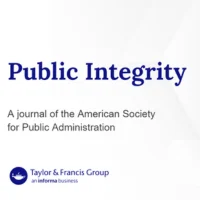
New article: ‘How Managers Respond to Fraud, Waste and Mismanagement: Ethics Management Survey in Uganda and Kenya
New article by Gedion Onyango published in the Journal of Public Integrity. This paper draws on a descriptive statistical analysis to explore managers’ perceptions of whether appropriate procedures and sanctions exist against fraud or wrongdoing and whether organisational mechanisms and management of human resources promote ethical conduct in Uganda and Kenya.

New article: Hoof Work: The Feminisation of Donkeys in Ethiopia
New article by Martha Rose Geiger published by Sage Journals on "The Feminisation of Donkeys in Ethiopia". The article explores how gendered divisions of labour manifest across species lines. It applies a feminist, more-than-human intersectional approach, building on previous work on animal labour. The vital labour donkeys do with and for humans and their contributions to multispecies societies have been under-recognised and under-theorised. Drawing on empirical research conducted in central Ethiopia on the human-donkey relationship.
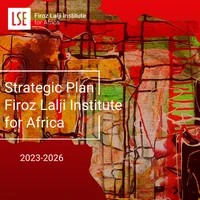
2023-2026 FLIA Strategy
"We are thrilled to release our three-year strategy that aims to centre Africa in LSE’s research, teaching, and engagement commitments. The institute is becoming a hub and platform for under-represented voices to share their perspectives and experiences in global debates. We invite you to take a look at our strategic aims and join our community to help us bring our goals to fruition".
- Martha Geiger Mwenitete, Chair of Strategic Development and Institute Manager
Read the full strategy here.
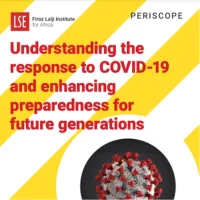
Periscope Final Report
The Periscope project, a collaborative initiative by EU academics and policymakers, provides vital insights into pandemic control policies. Examining testing strategies, health information dissemination, and vaccine coverage, the research is crucial for understanding COVID-19 responses. Notably, LSE advocates inclusive strategies and integrates African health emergency analysis, emphasizing insights from East and West African contexts. This research underscores the importance of considering historical politics in shaping disease responses.
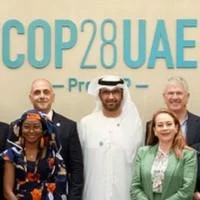
FLIA cited in COP28 submission
27 November 2023
The FLIA report Implications for African countries of a Carbon Border Adjustment Mechanism in the EUwas cited in the African Group of Negotiators submission to COP28.
The report was written in collaboration with the African Climate Foundation.
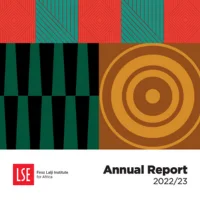
FLIA publishes 2023 Institute report
01 November 2023
The Firoz Lalji Institute for Africa has published its 2023 annual report, mapping the activities and initiatives from its inaugural year as an LSE institute.
It has been an exciting one for the FLIA with new projects, research agendas, and staff joining our team. Arguably the biggest development of the year has been the Centre for Women, Peace and Security (WPS), and the Gender, Justice and Security Hub joining the Institute.
To learn more about the exciting developments within the FLIA, read the full report here.
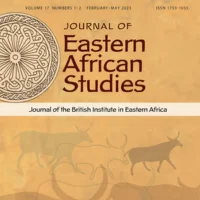
New article: ‘I have opened the land for you’: pastoralist politics and election-related violence in Kenya’s arid north
New article by Flora McCrone published in the Journal of Eastern African Studies. Flora explores endogenous elites and machinations within nomadic Samburu communities involved in and affected by this violence, using a ‘public authority lens’. It argues that ongoing governance changes in this region have created opportunities for political elites to mobilise territorial violence for strategic, political ends in advance of elections, including through a previously undocumented practice of "vote shipping".

New article: The Post-COVID-19 Economic Recovery, Government Performance and Lived Poverty Conditions in Kenya
New article by Gedion Onyango published in the Public Organization Review Journal. This paper draws insights from the Afrobarometer round 9 dataset on how different African governments' economies have been recovering from COVID-19 and how this has affected citizens' well-being in Kenya. The results show that despite the good recovery progress, the government has yet to stabilise high food prices, inflation, debts, job creation among other aspects.

New article: How Mafia Like Bureaucratic Cartels or Thieves in Suits Run Corruption Inside the Bureaucracy, or How Government Officials Swindle Citizens in Kenya!
New article by Gedion Onyango published in Deviant Behavior Journal, explores how variables relating to bureaucracy’s political outliers show that bureaucratic corruption can also be a tool of regime consolidation, a space of elite struggle for rewards and control. The result is that, a mafia-like white-collar corruption syndicate (cartels) and isolated corrupt practices emerge at all levels and sectors to enforce corruption and swindle citizens through unscrupulous bureaucratic processes.
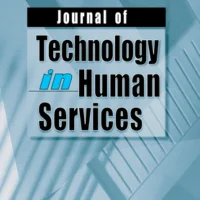
New article: Digitalising analogue policy targets! ‘Digital capabilities’ of older persons and policy digitalisation of social safety net programs in a developing country context
New article by Gedion Onyang and Japheth Otieno Ondiek published in the Journal of Technology in Human Services Journal. The paper discusses how the optimization of the human-centeredness of technological innovations – policy digitalization - has exceedingly proliferated in most policy sectors. Yet, a few studies exist on the implications of digital policy tools in realizing social protection policies for older people, particularly in Africa.

New article: Roundtable: How do We Connect Public Administration and Human Rights?
New article by Gedion Onyang et al., published in the Perspectives on Public Management and Governance Journal. The question on what role do scholars and practitioners in public administration play in protecting human rights has not received adequate attention in the field. In this roundtable, nine scholars explore the different ways in which public administration scholarship and practice may contribute to the advancement of fundamental human rights.

New article: Re-imagining and repositioning the lived experience of children seen as outsiders in Kenya.
New article by Elizabeth Ngutuku published in the Childhood Journal. This paper explores the contested identity and belonging for outsider-children in Kenya. Elizabeth explores the experience of children born out of marriage, those from other unions, the emergent insider-outsider child and children labouring to belong. Locating this experience in a relatively protective customary and legal regime, the context of poverty and the local imaginaries of belonging reveals the complexities that animate children’s lives. Elizabeth argues that children’s best interests as embedded in law, should enter into conversation with children’s lived realities.

Chapter in Book: Chapter 11: Sankofa: appreciating the past in planning the future of early childhood education, care and development in Africa
New chapter by Elizabeth Ngutuku and Auma Okwany on "Leveraging Early Childhood Education, care, and development at the margins". The chapter is part of the interdisciplinary book was led by UNESCO Tri-Chairs for Early Childhood Education, Care and Development that brought together perspectives from over 30 African experts and scholars, who explore early childhood care, learning and education through African lenses. Aimed at responding to inequities in knowledge production in this field.
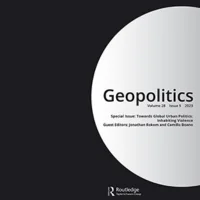
New article: Endurance Lost and Found: Unwanted Return and the Suspension of Time
01 November 2023
New Geopolitics article by Dr Anne-Line Rodriguez, FLIA researcher, explores migrants' temporalities after an involuntary return to Senegal in a context where, for European states and the International Organization for Migration, their time is 'up' and they should 'reintegrate'. The article argues that, through their endurance, returnees resist the temporality imposed on them by European states in order to solve another temporal struggle – that of entering male adulthood. Ultimately, the research questions the ‘effectiveness’ of Voluntary Return programs as part of externalisation policies.

New article: Women’s career motivation: social barriers and enablers in Sudan
31 August 2023
Dr Souad Mohamed, Senior Visiting Fellow at FLIA, co-authored research article on "Women’s career motivation: social barriers and enablers in Sudan" published by Frontiers in Psychology.
Liberia has suffered 20 years of ‘negative peace’. It’s time for change
17 August 2023
Robtel Neajai Pailey, FLIA Internal Advisory Board Member, has co-authored a commentaryfor Al Jazeera English reflecting on 20 years of 'negative peace' in Liberia. She and Aaron Weah argue that their country must strive for 'positive peace' going forward.
Stopping Firestone and starting a citizen ‘revolution from below’: reflections on the enduring exploitation of Liberian land and labour
04 August 2023
Robtel Neajai Pailey, FLIA Internal Advisory Board Member, has published a new journal articlein Third World Quarterly which argues that Liberia’s twentieth-century integration and twenty-first century re-integration into global capitalism has had diametrically opposed outcomes for government–citizen and citizen–citizen relations.

White Paper on sustainable industrialisation in Africa sets out a new approach to industrial policymaking
21 June 2023
A new paper on African industrialisation "The Art of Upgrading Industrial Policymaking Itself", released by the African Trade Programme and supported by ARISE Industrial Platforms Ltd, argues that successful African industrialisation in the twenty-first century will be different to the East Asian experiences of the twentieth century.
Under the guidance of FLIA's Professor David Luke, FLIA Policy Fellow Jamie Macleod, and Olawale Ogunkola, Professor of Economics, University of Ibadan, the paper claims that there is no single "the model" or "golden policy template" towards industrialisation, instead what matters is the approach and process by a committed developmental state including "experimenting and learning" to craft appropriate interventions.

New article: The Digital Economy’s New Monetary Imperative
5 June 2023
Visiting Professor in Practice, Piroska Nagy Mohácsi, has had a new article published inProject Syndicate.
The analysis focuses on central bank digital currencies (CBDCs), which are usually touted as a tool for improving cross-country payment systems, fostering financial inclusion, or providing a substitute for diminishing cash. But as important as these benefits may be, they are secondary to the indispensable role CBDCs could play in preserving monetary sovereignty.
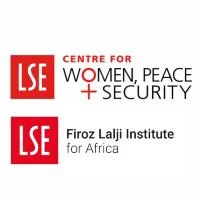
Centre for Women, Peace and Security to join FLIA in September 2023
12 May 2023
We are delighted to announce that the Centre for Women Peace and Securitywill join the FLIA from the beginning of the new academic year.
Our collaboration will support new opportunities for research and build on the excellent work of the Centre since its inception to promote justice, human rights, and gender equality. The FLIA and WPS are looking forward to this new collaboration. More information will be available in the coming months.
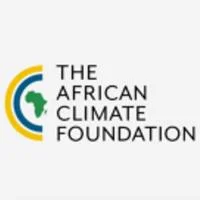
The African Climate Foundation and FLIA publish new findings
9 May 2023
A new, joint publication from African Climate Foundation(ACF) and the FLIA addresses 'The Implications for African Countries of a Carbon Border Adjustment Mechanism (CBAM) in the EU'. It was prepared under the overall guidance of Faten Aggad of the ACF andDavid Lukeof the FLIA.
The first of its kind, the report simulates aggregate effects and disaggregated effects of the CBAM on Africa. It raises concerns about the economic ramifications of the CBAM on Africa, specifically the competitiveness of African exports. A collaborative approach is called for to ensure that the CBAM does not reinforce existing power imbalances in the global trading system.

New article addresses trust and Roma reproduction
9 May 2023
FLIA researcher, Dr Iliana Sarafian has had her latest research published in Medical Anthropology Quarterly. The article asserts that Roma mistrust in government and health authorities was due to historical discrimination which merged with present interventions.
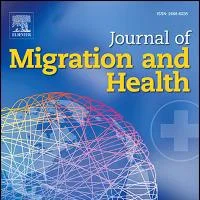
New paper explores undocumented migrants’ perspectives on Covid-19 vaccines
6 May 2023
FLIA researchers Costanza Torre and Elizabeth Storer have had a new article published in the Journal of Migration and Health: 'COVID-19 vaccines, mobility, and pandemic bureaucracies: Undocumented migrants’ perspectives from Italy's Alpine border'.
They assert that ‘pandemic bureaucracies’ are particularly significant in increasingly militarised borders, where vaccine regulation is equated with surveillance. The paper calls for vaccine policymaking which foregrounds mobility needs, as well as the provision of health information.
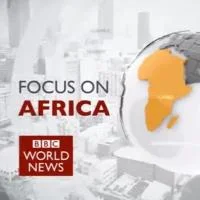
Robtel Neajai Pailey interviewed for BBC's Focus on Africa
5 May 2023
Dr Robtel Neajai Pailey, FLIA Internal Advisory Board Member, discussed Liberia's forthcoming elections with Esau Williams of the BBC's Focus on Africa on 4 May 2023. The impromptu interview was conducted in-person at the BBC World Service, New Broadcasting House, in London.
Listen to the conversation here.

A touch of Genius: The life, work and influence of Sir Edward Evans-Pritchardpublished
3 May 2023
A new book, A touch of genius: The life, work and influence of Sir Edward Evans-Pritchard, has just been published by Sean Kingston Books. Edited by André Singer, the volume reflects upon his life, work and influence.
FLIA Director, Professor Tim Allen,and FLIA researchers, Grace Akello, Elizabeth Ngutukuand contributed to the book about the anthropological scholar. Each of them spoke at the launch of the book on a panel that addressed how the work of Sir Evans-Pritchard affects their work in Africa.

New article addresses mutating vaccine fears and colonial histories in Arua, Uganda
24 April 2023
The latest article by FLIA researchers Dr Elizabeth Storerand Innocent Anguyo links the colonial and postcolonial history in North-West Uganda to Aruans' inclination to mistrust government and medical authorities and evidence of vaccine efficacy.
With local opinions pre-disposed towards mistrust, the authors show how vaccines were came to be presented as potentially lethal. They address the complex world of mistrust – a social realm linked as much to colonial deceptions as sensational rumours about vaccine conspiracies.
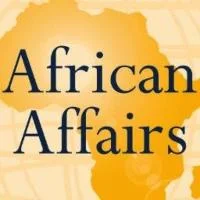
New paper investigates global norms for responsible land investments in Sierra Leone
21 April 2023
Writing in African Affairs, CPAIDresearcher Carolin Dieterle investigates the variations of customary tenure, chiefly power, and global norms for responsible land investments in Sierra Leone.
Responding to debates around land grabbing, the international community has developed global governance norms for responsible land investments. Despite the influence of these guidelines, there is a spatial variation in the conformity to and effectiveness of these norms in cases of land investments. Based on fieldwork in Sierra Leone this article argues that such variations hold implications for the uptake of global norms for ‘responsible’ investments.
Read the open access article here.

Is Liberia heading towards an electoral crisis?
21 April 2023
Dr Robtel Neajai Pailey, FLIA Internal Advisory Board Member, has co-authored a commentary in African Argumentswhich predicts an electoral crisis in Liberia if certain conditions are not met before high-stakes voting in October for president, vice president, senators and representatives.
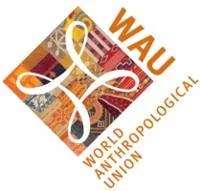
Call for papers for next World Anthropological Union congress
19 April 2023
FLIA researchers announce a call for papers for a panel being convened at the International Union of Anthropological and Ethnological Sciences congress in New Delhi in October.
The panel will address "Resilience in cross-cultural contexts", and invite submissions for abstracts for papers by 30 April.
Find out more and submit a panel abstract.

First book writing group applications open for early career researchers
31 March 2023
Opening Lines is an 18-month inclusive writing, research, and professional development programme supporting up to 12 early career scholars who are starting to write their first book. It guides them through the process with an external coach, Dr Jenny Chamarette, with a view to fostering long-term supportive peer relationships for the first monograph and beyond.
The group will gather weekly during three phased blocks from Spring 2023-Summer 2024 for practical workshops, group feedback, and writing sessions, one-to-one writing mentoring, and discussions on writing book manuscripts. Early career researchers are invited to apply.
Find out more about the course, apply to join the course.

Dr Elizabeth Storer receives LSE Global Research Funding
31 March 2023
Elizabeth Storer has been awarded the LSE Global Research Fund to host a collaborative meeting with researchers at the Uganda Cancer Institute and Uganda-UK Health Alliance. The aim of the award is to collaborate to produce social science research that explores the barriers to cancer care.

Public Authority and the Governance of Informal Cross-Border Trade in Eastern DRC
27 March 2023
Jonathan Bashi has received funding to research the importance of designing good trade policies that take into account informal trade flows, which may allow these trade flows to be brought under the umbrella of regional trade policies. Building on pre-existing research, this research project uses the case study of small cross-border traders in Eastern DRC to explore border dynamics in informal cross-border trade.
Focusing on the Common Market for Eastern and Southern Africa (COMESA) Simplified Trade Regime, the proposed research examines the need for good institutional design of regional trade policies that are better adjusted to the particular circumstances of their targeted beneficiaries, and thus, have a broader coverage of trade agreements.
This research project is funded by a British Academy/Leverhulme Small Research Grant.
You can read more in his blog post.
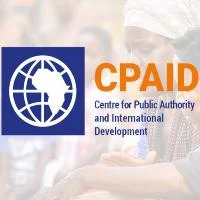
Registrations open for public authority and humanitarianism course
23 February 2023
The University of Johannesburgand the Centre for Public Authority and International Developmentat the FLIA are offering early- and mid- career humanitarian and development professionals a free, eight week course on public authorityand its application to key issues for the sector.
The course’s first 2 days (24th and 25th April) will be held in-person on the University of Johannesburg campus. The course will then move to seven weekly online sessions focussing on different pressing issues.
Find out more and register for the course.
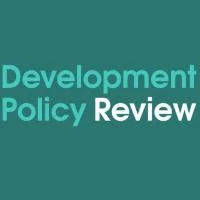
New paper investigates the IMAGINE water governance model in Goma
10 February 2023
Since 2014, the Integrated Maji Infrastructure and Governance Initiative for eastern Democratic Republic of the Congo (IMAGINE) has instigated a public-private partnership for water provision in Goma, Eastern DRC. This journal article, by CPAIDresearchers , , Patrycja Stysand Mercy Corps’ Tom Mosquera, explores adaptive approaches to development programmes that aim at improving service provision in fragile and conflict affected states.
The authors consider the IMAGINE case study to show that initiatives take on the characteristics of a public authority when adapting to on-the-ground realities.
Read the Development Policy Review aricle.

FLIA announces Africa Dissertation Prize winners
9 February 2023
The Firoz Lalji Institute for Africa is pleased to announce the winners of the 2021/2022 Africa Dissertation Prize, which is awarded to the year's most innovative and significant Master’s dissertations furthering our understanding of the continent.
This year the prize has been granted to two students, from the departments of International Developmentand Geography and Environment. Join us in offering our congratulations to Fraser Curry and Nora Geiszl!
Learn about the LSE Africa Dissertation Prize.

New paper in Transcultural Psychiatry addresses delivery of mental health interventions in northern Uganda
7 February 2023
FLIA research fellow, Dr Elizabeth Storerand Costanza Torre have published a new paper in Transcultural Psychiatry: ‘All in good faith?’ An ethno-historical analysis of local faith actors’ involvement in the delivery of mental health interventions in northern Uganda.
The article considers the role of faith actors, who increasingly lend their psychological support in humanitarian settings when responding to mental disquiet in northern Uganda. The authors argue for the recognition of faith actors as agents delivering therapies.

European University Institute publish working paper on post-colonial citizenship in African states
3 February 2023
FLIA Senior Fellow, Dr Bronwen Manby, has working paper published by the Robert Schuman Centre for Advanced Studiesat the European University Institute.
Dr Manby's paper, entitled, 'Post-colonial citizenship and decolonisation as a turning point: continuities and discontinuities in African states' compares the evolution of concepts of citizenship when African states gained independence, with other global decolonisations. The paper examines the particular experience of European imperial oppression in African states, as it created continental dynamics in notions of citizenship that are different from other nations.
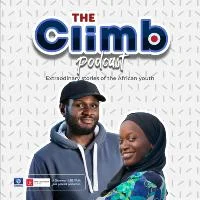
FLIA and Channels TV launch new podcast: The Climb
30 January 2023
The Firoz Lalji Institute for Africa and Channels TVare proud to announce the launch of their new joint venture: The Climb Podcast. It tackles themes of youth leadership, innovation, and development through unique stories of individual achievement and panel discussions.
The Climb will run twice a month, presenting discussions on issues relevant to young Africans living on the continent and in the diaspora.
The first episode, John's Story follows the remarkable account of John Oseni, a 17 year-old tech prodigy from Akure, Nigeria.
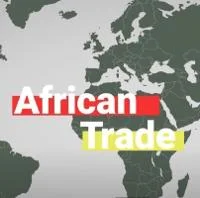
New LSE Research for the World video: Why is African trade underperforming?
27 January 2023
The new issue of LSE's Research for the World Economy special edition, features the video, 'Why is African trade underperforming?'.
Although Africa represents 17% of the world's population, it only accounts for 2.3% of global trade as it relies heavily on volatile commodities like fossil fuels, metals and ores and is held back by current policies and unbalanced partnerships. How can we boost trade flows inside and outside the continent to create more jobs and further development?

LSE Research for the World: Understanding African trade is key to helping its development
25 January 2023
LSE's Research for the Worldis celebrating its second anniversary with an economy-themed special edition.
Remarkably little is known about African trade outside specialist circles although annual revenues from trade are more than foreign aid, remittances, and investment flows combined. A new book edited by David Lukeaims to address this gap, examining what Africa trades, with whom, and setting out how policymakers could forge more positive, development-focused trade partnerships in the future.
Read the interview and article.

New article published on on regional integration in Africa
5 January 2023
FLIA Visiting Professor, Olawale Ogunkola has contributed to the introduction of a new special issue, published in The World Economy Journal.
The article, Rethinking regional integration in Africa for inclusive and sustainable development, provides background to regional integration on the continent and details the new African Economic Research Consortium project.
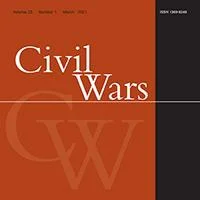
Team of LSE-led scholars publish double issue of Civil Wars
28 November 2022
Part of FLIA's Centre for Public Authority and International Development, the collection of nine articles in the Civil Warsdouble issueshowcase key research on humanitarianism and resilience in East Africa.
This project has successfully brought together non-native English-speaking African colleagues, and early career scholars to jointly publish their research. Six of the special issue's papers are by previously unpublished African scholars.
Open access to the special issue.

Law and Society Review publishes CPAID paper on citizen engagement with courts in Uganda
23 November 2022
A new journal article by CPAID researchers Anna Macdonald, SJ Cooper-Knockand Julian Hopwood has been published in the Law and Society Review.
The ethnographic paper zooms in on lower state courts in post-war northern Uganda, and shows why citizens appeal to the rule-of-law in places where state authority is contested. Corruption and judicial inefficiency make individuals turn to lower state courts, the authors' research sheds light on legitimacy, trust, and corruption in the context of these spaces.
Read the open access article here.
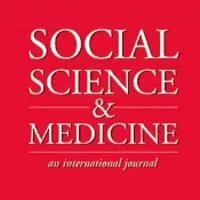
New CPAID publication addresses responses to COVID-19 in Uganda
22 November 2022
Focused on ethnographic research, this article evaluates militarised responses to COVID-19 during and after two lockdowns at contrasting sites in Uganda: a small town in Pakwach district and a village in Kasese district.
Published in the Journal of Social Science and Medicine, CPAIDresearchers address the modes of mutuality created to resist regulations, and the impact that embedding military activity in COVID-19 responses had in strengthening authoritarian rule.
Read the full publication here.

FLIA Professor in Practice to speak at COP27 side event
9 November 2022
David Luke, Professor in Practice and Strategic Director of the Firoz Lalji Institute for Africa, will be speaking on a Business Europepanel as part of the European Union's COP27 side eventsseries.
The panel will discuss the EU's adoption of the first Carbon Border Adjustment Mechanism (CBAM) of any trade bloc, as well as the development of climate clubs. Are these actions complementary? And will the CBAM serve as the additional motivation for other regions to step up their climate ambition?
Register to attend the event virtually.

New online course addresses vulnerable groups reached through pandemic policy available now
7 November 2022
FLIA researchers, Dr Elizabeth Storer, Dr Iliana Sarafian, Constanza Torre, Sara Valleraniand Eloisa Franchihave contributed to a new online course entitled Reaching Vulnerable Groups through Pandemic Policy.
The course was developed as part of the Periscope project, hosted by the Firoz Lalji Institute for Africa and funded by Horizon 2020. The project investigates the broad socio-economic and behavioural impacts of the COVID-19 pandemic.
The online course is available now, enrol for free.

FLIA Visiting Fellow, Dr Juliet Bedford wins Marsh Award for Anthropology in the World
24 October 2022
Dr Juliet Beford has been honoured by the Royal Anthropological Instituteand Marsh Charitable Trustwith the Marsh Award for Anthropology in the World.
The prestigious award recognises an outstanding individual based outside academia who has applied anthropology or anthropological ideas in order to have a positive influence on, or help us better understand, the problems facing our world today.
Dr Bedford's research brings anthropological approaches to the task of strengthening the capability to impede public health emergencies in resource-constrained settings. Her work has helped to build a strong evidence base for community-based approaches to combat humanitarian crises.

Dr Robtel Neajai Pailey wins African Politics Conference Group book award
18 October 2022
FLIA internal board member, Dr Robtel Neajai Paileyhas won the 2022 African Politics Conference Group (APCG)Best Book Award for her monograph Development, (Dual) Citizenship and Its Discontents in Africa: The Political Economy of Belonging to Liberia(Cambridge University Press, 2021).
The APCG brings together scholars from around the world whose research and professional interests centre largely or in part on the study of politics in Africa.
The Award will be formally presented in November at the annual meeting of the African Studies Association (USA), of which APCG is an affiliate organisation. Congratulations, Dr Pailey!
Read more about the prize-winning monograph.

Kenneth Amaeshi appointed to European Commission High-Level Expert Group on Scaling Sustainable Finance in Low- and Middle-Income Countries
12 October 2022
FLIA's Visiting Professor, Kenneth Amaeshi has been appointed to join the new, high-level expert group on scaling up sustainable finance in low- and middle-income countries.
At a time when multiple international crises are negatively impacting the global economy, the appointees will advise the European Commission on scaling up funding from the private sector, to reflect on the challenges and opportunities of sustainable finance in partner countries.

New Datafication and Digital Rights in East Africa comic illustrates implications of digital technologies
10 October 2022
The "Hustling Day in Silicon Savannah"comic is part of the Datafication and Digital Rights in East Africaproject, funded by the UKRI DIDA grant.
Based on research conducted in Kenya during the emergence and transformation its digital economy, the cartoon questions what lies behind the "Silicon Savanah" brand and why have international donors been so drawn to the scene. The picture, the comic reveals, is anything but neat.
Learn more about the research and view the comic.
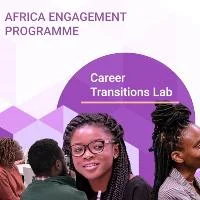
Career Transitions Lab 2022 report published
2 October 2022
The FLIA's Africa Engagement Programme present their 2022 Career Transitions Lab report.
The 4-day careers lab, open to LSE African students interested in working on the African continent or on African issues, equips students with the knowledge needed to support their successful transition to professional life.
The report details the context and outcomes of the lab, and highlights key student takeaways. To find out more about the Africa Engagement Programme and Career Transitions Lab watch the accompanying video.
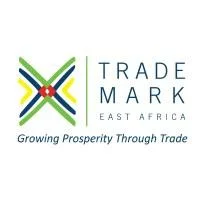
Professor David Luke appointed Non-Executive Director of TradeMark East Africa
28 September 2022
The FLIA's Professor David Luke has recently been appointed to TradeMark East Africaas Non-Executive Director.
TradeMark East Africa (TMEA) is a not-for-profit organisation that aims to grow prosperity in East Africa through increased trade, and work closely with the African Union and the East African Community among many others.

FLIA report on vaccine hesitancy published by British Academy
21 September 2022
FLIA researchers Dr Elizabeth Storerand Dr Iliana Sarafian present their report and summary findings from the Ethnographies of Disengagement: Understanding Vaccine Rejection in Chronically Neglected Communities across the G7 research project.

New article explores the consequences of groups' exclusion from vaccine campaigns
13 September 2022
Ethnographies of (Dis)Engagementresearchers at the FLIA have just had their latest journal articlepublished in BMJ Global Health. The new work explores the impact of high vaccine rates, demanded by the G7, in Italy.
The authors address the tension between this vaccine drive, and minority groups' trust in healthcare. Ethnographic data produced with migrant and Roma communities explores vaccine hestitancy and a deepening mistrust in science and the state.

FLIA publishes 2022 Institute report
24 August 2022
The Firoz Lalji Institute for Africa has published its 2022 annual report, mapping the activities and initiatives from its inaugural year as an LSE institute.
The report addresses the ongoing successes of the Programme for African Leadership, a high-profile public events programme including the student-led 2022 Africa Summit, research innovation through the Centre for Public Authority and International Development, the continued growth of the Africa Engagement Programme and the Africa at LSE blog.
To learn more about the exciting developments within the FLIA, read the full report here.

New paper examines effectiveness of the liberal state-building project in Uganda
22 August 2022
CPAIDconsultant, Professor Bretthas published a new paperin World Developmentthat explores public authority and political transitions in conflict-affected states.
Drawing on the heavily contested interactions between modern and traditional systems of public authority, Professor Brett argues that states are better enabled to build long-lasting and inclusive political and organisational structures with a combination of these systems. The political transition in Uganda in particular, is used to demonstrate the efficacy of this approach.

New paper critiques Ethiopia's developmental state under the EPRDF regime
9 August 2022
FLIA research officer, Mebratu Kelecha, has published his latest journal articlefor the Canadian Journal of Development Studies. The paper explores how the Ethiopian People's Revolutionary Democratic Front's (EPRDF) vision of a developmental state diverged from the East Asian model.
Dr Kelecha primarily argues that the failure of development projects, large public investments and the impact of associated land grabs have caused fragmented public support. As a result of this popular discontent, the legacy and success of the developmental state in Ethiopia is contested.
Read the full publication here.

PfAL hosts the 2022 graduation ceremony
29 July 2022
The Programme for African Leadership(PfAL) has hosted its annual graduation ceremony for African Master's students at LSE. The graduation included speeches from Dr Vanessa Iwowo and Professor Gibril Faal, who discussed the importance of Ubuntu for the growing PfAL alumni network, including how young Africans on the continent are changing narratives around work and community.
Programme certificates were awarded to 70 "PfALers" for their participation throughout the year. Celebrating with her peers, graduate Kinya Mugaine reflected that students should "constantly seek out opportunities and to see rejections as an opportunity to learn and grow". In its 11th year, the programme will develop this ethos to empower a new generation of African leaders as changemakers on the continent.
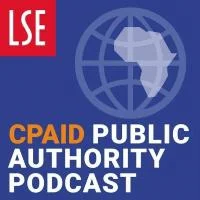
New Public Authority Podcast discusses the impact of FLIA research at the International Criminal Court
28 July 2022
"If they were going to prosecute Ongwen for anything, it had to be for sexual and gender-based crimes."
A new episode of the Public Authority Podcast examines the impact of long-term research focussed on northern Uganda hosted at the Firoz Lalji Institute for Africa. The episode talks to FLIA Director Tim Allen and researcher Jacky Atingo to understand how their research aided the successful prosecution of former LRA commander Dominic Ongwen at the International Criminal Court in 2021.
Listen to the podcast on SoundCloud, Apple Podcastsor on LSE Player
Learn more about the research and its impact at the ICC
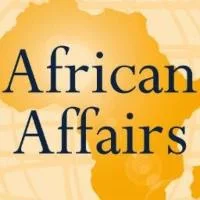
New paper investigates the political-economic networks that underpin the dominance of logistics firms in Somalia
27 July 2022
Writing in African Affairs, FLIA research fellow Claire Elder investigates the underlying factors of Somali "state failure" through the political economy of logistics. Using in-depth ethnographic fieldwork, the paper argues that divisions among national elites and vested interests over current aid practices perpetuate the empowerment of lead logistics firms, destabilising the Federal Government of Somalia.
The study illustrates that ports, airports, marine resources and areas rich in oil and minerals are intricately connected to the logistics economy. Dr Elder maintains that donor accountability and partnership monitoring are pivotal to breaking the cycle of capital accumulation among logistics firms and subsequent state failure.
Read the open access article here.
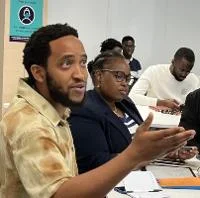
FLIA launches the four-day AEP Career Transitions Lab 2022
26 July 2022
To support LSE African students interested in working in Africa, or on African issues, the FLIA hosted the first in-person Career Transitions Lab. The four-day event from 27-30 June included 12 workshops and seminars with nine speakers from different industries, who shared practical knowledge on transitioning into the African job market post-LSE.
Held annually in June, the Lab was an opportunity for students to reflect on their career journey, share skills and experiences for pursuing professions with positive impact and consider next career steps with guidance on how to best navigate the current job market.
Learn about the Career Transitions Lab.

FLIA hosts Africa PhD Research Day 2022
25 July 2022
Hosted as part of the Africa Engagement Programme, the FLIA has hosted its inaugural Africa PhD Research Day. The event brought together PhD students working on Africa across all LSE departments, showcasing the breadth of the School’s work on the African continent.
The event served as an opportunity for PhD students to create new connections and present ongoing research to a community sharing a regional focus. A total of eight presenters throughout the day engaged with their peers and academic staff, providing a platform for receiving and giving feedback.
Learn more about the Africa PhD Research Day. To participate as a PhD candidate, please contact l.orero@lse.ac.uk.

FLIA research sets a ground-breaking precedent in the ability to prosecute international crimes of a sexual nature
13 July 2022
LSE's Research for the World magazine has published an article explaining how research from FLIA Director Tim Allenand Centre for Public Authority and International Developmentconsultant Jackline Atingo contributed to the successful prosecution of Dominic Ongwen, a senior commander in the Lord's Resistance Army (LRA).
The research contributed to a successful prosecution in 2021 by allowing victims of sexual violence to provide witness testimony before the trial started from Uganda. This sets a ground-breaking precedent in the ability to prosecute international crimes of a sexual nature and, should the precedent be applied more broadly, will ease the prosecution of crimes of sexual violence in domestic and international jurisdictions.
View the impact of their work here.

New research explores refugees' resistance to humanitarian-development programmes
7 July 2022
FLIA researcher Dr Ryan O'Byrne has published his latest journal article in Civil Wars, drawing on twelve months of ethnographic fieldwork in the Palabek Refugee Settlement in northern Uganda.
The paper examines how fraud and corruption within food aid delivery undermined the lives of refugees, as well as their survival, coping and resilience. The article additionally underlines the importance of refugees' agency in the pursuit of resistance strategies and their response to exploitation.

New paper examines children's aspirations in the context of precarity
20 June 2022
A special issue of Ethnography and Education has published a paper by FLIA researcher Elizabeth Ngutuku, which explores how experiences of education inform children's aspirations in Siaya Kenya.
Looking at aspirations through the lens of poverty, orphanhood, death, HIV/AIDS and marginalisation, the study draws on ethnographic data to investigate how Kenyan education equips children to achieve their desired futures. The way children think about and "materialise" the future is further shown to enable the overcoming of day-to-day challenges.

FLIA seeks new Communications Manager and Blog Editor
16 June 2022
The FLIA is hiring a Communications Manager and Blog Editor with a senior-level understanding of communications and public affairs in African research promotion, policy and publishing.
The suitable candidate will have significant experience in using communications to design and inform strategic objectives and advocating brand development at senior institutional levels. The candidate should possess exceptional writing and editing skills for varied audiences and experience working with senior professionals to improve outputs.
Deadline: 31 July 2022
Visit here for further information.

FLIA seeks new Communications and Events Officer
6 May 2022
The FLIA is hiring an enthusiastic and organised communications and events professional to join our dynamic team.
The suitable candidate will have significant experience and expertise in communications, and the technical ability to employ these skills across a wide range of online and offline channels. The postholder will also have previous experience of working to deliver public and closed events and of managing a varied workload, including experience overseeing junior staff members.
Deadline: 15 June 2022
Visit here for further information.

New paper explores reconstructions of resilience through marungi (khat) trade in northern Uganda
12 May 2022
A new paperfrom FLIA researcher Elizabeth Storeruses marungi trade in northern Uganda as a lens to understand the everyday experience of "resilience". Published in the Journal of Civil Wars, the research seeks to explain the inequities that constitute resilience in the country's post-war period.
Building on interviews, conversations and observations with marungigrowers and traders, the paper calls for a re-conceptualisation of resilience as a historically constituted process, entangled in socio-economic inequities and complex politics of power.

Winners announced for the Firoz Lalji PhD Thesis Prize 2022
12 May 2022
The FLIA is pleased to announce the winners of the inaugural Firoz Lalji PhD Thesis Prize, which celebrates outstanding contributions to knowledge on Africa. Four successful candidates have been selected by an internal committee of academics, with each candidate hosting their doctoral research at LSE.
Henry Musa Kpaka and Richard Stupart are joint winners of the prize for producing work exploring, respectively, traditional political institutionsin Sierra Leone and journalism practicesin South Sudan, each receiving £1,000. "Director prizes" have also been awarded to Kate Dawsonand Camille Pellerin.
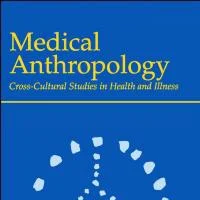
New research explores COVID-19 "riskscapes" across the African Great Lakes region
26 April 2022
Drawing on fieldwork across Uganda and Malawi, a new paperfrom FLIA researchers Elizabeth Storer, Kate Dawsonand Cristin A. Fergus investigates how localised COVID-19 responses impacted perceptions of viral risk. Published in Medical Anthropology, the research uses a "riskscapes" framework to examine how trans-border figures – truck drivers and migrant traders – were understood as "others" during the pandemic.
The research demonstrates that COVID-19 testing regimes and disease metrics in the Great Lakes Region aggravated blame for viral risk, revealing neglected forms of discriminatory discourse and practice.

LEAD project publishes study on effective decision-making for schistosomiasis control and elimination
25 April 2022
A new studyinto the control and elimination of schistosomiasis transmission in Uganda has published results in BMJ Global Health. After cycles of health interventions have failed to deliver promised reductions of the disease in the country, the research examines new ways of incorporating expert perspectives into the evidence needed for more effective health decision-making.
Led by researchers Cristin Fergus and Professor Tim Allenon the LEAD project, the study used a combination of "participatory systems mapping" and computational modelling to incorporate new voices into the understanding of disease transmission at national and subnational levels. The findings demonstrate that a wider range of perspectives in the policy, oversight and implementation of schistosomiasis control can create a sustainable reduction in transmission.
Read the paper in BMJ Global Health.
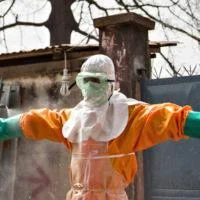
New working papers from project on health-seeking in Uganda
11 April 2022
The research project "Living the Everyday" has published three working papers investigating epidemic containment and health-seeking in Uganda. Focussed on how social relations affect the management of sickness, the project draws on the Firoz Lalji Institute’s extensive interdisciplinary expertise in the region and partnerships with Muni and Gulu University.
Compiled by FLIA researcher Dr Elizabeth Storer, the working papers explore the history of lockdownsin response to epidemics in the West Nile sub-region, the use of herbal medicinesas a reported prevention and cure for COVID-19 and the pandemic response at Arua Regional Referral Hospital, presenting an interview with the district's chief emergency care coordinator.
View publications and learn about the project.

Africa PhD Research Day open for submissions
7 April 2022
The Firoz Lalji Institute for Africa has announced its inaugural Africa Research Day, which invites PhD students at LSE who research the African continent to showcase their work.
PhD researchers and applicants at any stage of their studies across all LSE departments are invited to participate. Researchers will discuss various topics including health, development, economics, sociology, finance and more. PhD students of African heritage are particularly encouraged to present their work. The event will also include a keynote lecture by Dr Lucy Kanya, a Research Fellow at LSE’s Department of Health Policy.
The full-day event will take place at LSE on Wednesday 25 May 2022. Online attendance is also available.
Learn about the Africa PhD Research Day 2022.

New CPAID comic illustrates how motorbike taxi drivers in Sierra Leone adapted during the Ebola crisis
5 April 2022
Artist Didier Kassai has collaborated with FLIA researcher Dr Jonah Liptonto illustrate how front-line workers in Sierra Leone experience emergencies.
Hazard Pay, the latest addition to the series of six comicson public authorityacross Africa, is based on research in Freetown, Sierra Leone, during the 2014-16 Ebola epidemic. The comic follows Peter, a motorbike taxi driver recruited into the official Ebola response, to show how he navigated new formalised employment. The cartoon represents thousands of young, marginalised people in the country who became representatives of the state through the ‘Hazard Pay’ scheme.
Learn about the research and view the comic.

UK Parliamentary Committee publishes FLIA policy submission on African trade policy
4 April 2022
The African Trade Policy Programme at the FLIA has submitted proposed reformsto the UK Parliamentary Enquiry Committee on trade policy with African countries. Published by the Committee, the submission complements the UK's ongoing parliamentary review into a post-Brexit trade policy.
Drawing on data from the programme, the policy submission emphasises the need for the UK to move away from the EU's approach to Economic Partnership Agreements(EPAs) towards a continent-wide trade policy. The proposal also calls for reforms in the UK’s General Special Preferences scheme (GSP) to leave non-trade normative aspects that might hinder multilateral trade to other forums. These reforms advocate a more equitable multilateral trading system that champions the interests of the UK alongside development prospects in African and low-income countries.
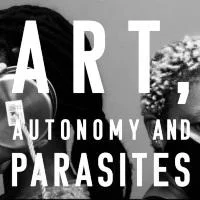
New catalogue presents project findings on public health decision-making in Uganda and Malawi
21 March 2022
The Localised Evidence and Decision-making (LEAD)project has commissioned visual media to present research findings on schistosomiasis and soil transmitted helminths in Uganda and Malawi. A partnership between LSE, SOAS, LSHTM and PostiveNegatives, Visual Arts-LEADexplores alternative perspectives and strategies for health communications, producing a collaboration between art historians, medical anthropologists, designers and artists based in Uganda, Kenya, South Africa, Tanzania and the UK.
Created by LSE Fellow Kara Blackmore and Dr Polly Savage at SOAS, a new catalogue foregrounds local creative practices in relation to questions of autonomy and medical knowledge.
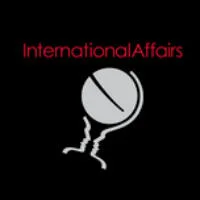
FLIA researcher shortlisted for the International Affairs Early Career Prize 2022
11 March 2022Dr Claire Elder, researcher at the FLIA's Centre for Public Authority and International Development, has been shortlisted for the International Affairs Early Career Prize. The prize is designed to celebrate the quality of research published by authors with less than seven years of experience in International Relations after completing their PhD.
Dr Elder's articleprovides fresh insights that challenge underlying assumptions about Somaliland's democratisation and development processes. It highlights how de facto states struggle to balance political control and financial hardship, generating creative and uneven governance structures.
Learn about the International Affairs Early Career Prize.

New research investigates artistic representations of transition in post-conflict Uganda
23 February 2022
As part of the Politics of Returnproject, new research investigates the harm caused by problematic portrayals of Uganda’s decades-long civil conflict between the Lord’s Resistance Army and the Government of Uganda.
Published in the Journal of Critical Arts, FLIA researcher Kara Blackmore presents work in the exhibition When We Return, which interrogates issues of displacement, refugee settlement and humanitarian aid. The paper argues that artworks and their curation in war-affected areas of Uganda have the potential to address media representations of the civil war that have damaging effects today.

FLIA seeks new Research Officer
22 February 2022
The FLIA is seeking a Research Officer to work on themes of resilience and sustainability in Africa, funded by the Rockefeller Foundation. The role will require original research on one or more of the research themes from the Rockefeller Research project portfolio.
Candidates are required to have completed a PhD in a relevant social science or humanities field and have a strong publishing track record of research on resilience and sustainability in Africa. The role will entail data collection, data analysis, writing, presenting research findings at academic forums, editing and publishing research in academic journals and liaising with scholars working on the completed LSE Rockefeller-funded projects.
Deadline: 13 March 2022
Visit here for further information.

New paper investigates the "resilience" among Acholi youth in northern Uganda
8 February 2022As part of the Deconstructing Notions of Resilience project, a new article explores how "resilience" shapes individual experiences of morality and community wellbeing. FLIA researcher Francis Abonga uses the lens of sports to investigate how Acholi youth understand, experience and value resilience in northern Uganda.
Published in the Journal of Civil Wars, the paper demonstrates that Acholi youth view sports programmes as effective tools in their "resilience" infrastructure. However, engaging critically with contextualised and locally informed understandings of resilience is needed to interrogate power dynamics. Culturally sensitive resilience frameworks must therefore respond to divergent power dynamics within the community.

The FLIA supports applicants to the British Academy Newton International Fellowship scheme
27 January 2022
The FLIA will support fellowships for promising early-career post-doctoral researchers from overseas aligned to its research areas. Successful fellowships through the British Academy will enable researchers to work for two years at LSE in London, with the aim of fostering long-term international collaborations.
To apply for support with the FLIA, please express your interest by sending a summary of your research idea (500 words) and how it fits our research areas, along with your CV (2 pages). Please contact Melissa Anderson (M.Anderson6@lse.ac.uk).
Deadline: 11 February 2022 | 23.59 GMTLearn about the fellowship scheme.

FLIA seeks new Senior Progamme Manager for the Programme for African Leadership
24 January 2022
The FLIA is seeking a full-time Senior Programme Managerto support the Programme for African Leadershipat LSE. The programme supports African students to become value-driven and effective leaders through structured activities and events, while building an alumni network whose members are committed to positive impacts in African communities.
The successful candidate should be experienced, dynamic, motivated and organised. They will be responsible for all aspects of the programme and student experience. The postholder is expected to manage the recruitment and admission of students into the programme each year, as well as design and tailor the programme to achieve learning objectives and outcomes. The postholder will also lead on the strategic development of the programme as it grows.
Deadline: 13 February 2022
Visit here for further information.

New article highlights variations in the conception of resilience among former Lord's Resistance Army recruits
14 January 2022
The term "resilience" is generally associated with the reintegration and resettlement of former combatants and war-affected populations. However, the concept has sometimes become so fixed that it is not defined at all, although its actual implications may be diverse and even contradictory.
Researchers at the FLIA's Centre for Public Authority and International Development reflect on contrasting arguments about resilience in current research. Published in the Journal of Civil Wars, a new article focuses on former child recruits of the Lord's Resistance Army (LRA) in northern Uganda to underline variations in the normative conception of resilience. Seemingly contradictory findings show that most former recruits face social rejection and can not present themselves as "resilient" according to notions of self-reliance and entrepreneurialism.

New paper investigates resilience-driven humanitarian-development processes in the Karamoja region of Uganda
13 January 2022
The Uganda government concluded a brutal disarmament campaign in the Karamoja region in 2011. Its post-conflict humanitarian-development interventions in the region since have painted a picture of improving resilience capacity characterised by improved security, market development, accessibility and mobility.FLIA researcher Dr Ponsiano Bimeny, working on the Deconstructing Notions of Resilience project, challenges this depiction. Published in the Journal of Civil Wars, the research shows that current resilience-based interventions in the region appear to neutralise and dismantle the aspects of communities that make them resilient in the first place. Consequently, the Ngakaramojong concepts of resilience are, for the most part, unseen or ignored by humanitarian-development programming.

FLIA hosts webinar on migration policies in Africa and Latin America with LSE alumni associations
15 December 2021
The FLIA has co-hosted the webinar "Migration Policies in Africa and Latin America and Caribbean" to investigate how Latin American and African countries have coped with large rates of migration.A collaboration with the Latin America and Caribbean Centre and the Africa and Latin America LSE Alumni Associations, the webinar addressed the problem of underfunded and ineffective asylum systems and the effectiveness of integration policies pursued by regional bodies, such as the African Union. Expert speakers also discussed the effects of political conflict and external organisations, such as the International Organisation for Migration (IOM) on migration policies in Africa.

New research investigates COVID-19 vaccine rejection in chronically neglected communities across the G7
26 November 2021
Hosted by the FLIA as part of the larger PERISCOPE project, Ethnographies of (Dis)Engagementexplores attitudes towards COVID-19 vaccines among social groups who have reported some of the lowest rates of uptake across the G7 and the world.Addressing the lack of qualitative social science approaches to understand COVID-19 responses, the project provides a unique opportunity to unite ongoing research through in-depth qualitative methods. As such, "Ethnographies of (Dis)Engagement" aims to contribute to the reversal of significant "blind" spots in national COVID-19 responses and raise the profile of ethnographic evidence in epidemic and pandemic preparedness.
Learn more about the research.

New CPAID comic illustrates why mass drug administration campaigns failed to control bilharzia in Uganda
24 November 2021
Ugandan artist Dianah Bwengye has collaborated with researcher Gloria Kiconco to illustrate why mass drug administration campaigns in Uganda have failed to control bilharzia.Weak Links, the latest addition to the series of six comics on public authority across Africa, tells the story of a journalist who seeks to investigate the prevalence of schistosomiasis (bilharzia) despite long-term health programmes in Uganda. The cartoon presents a gripping storyline and easy-to-follow diagrams to disseminate contextually relevant health knowledge about the transmission of bilharzia, which is based on research at the LEAD project.
Learn about the research and view the comic.

New article explains the struggle for survival in Sierra Leone
11 November 2021
The recent fuel tank explosion in Freetown, Sierra Leone, killed more than 100 people, many of whom were young bikers and taxi drivers.
Dr Jonah Lipton, researcher at the FLIA's Centre for Public Authority and International Development, examines how the accident is a part of a bigger picture of the struggle for survival in Sierra Leone. The article highlights the challenges young people face and why they take on dangerous jobs in informal transport. Dr Lipton argues the country is yet to see a genuine recovery after a decade of civil war, pandemics and international pressure to "liberalise" the economy by cutting trade tariffs and reducing state expenditure.

New research challenges discourses on Somaliland's democratisation and development process
10 November 2021
The depiction of Somaliland as a safe haven of security and stability, according to FLIA researcher Dr Claire Elder, has downplayed internal political dynamics and complex crises for decades. New research from the FLIA's Centre for Public Authority and International Development provides insights that challenge underlying assumptions about Somaliland's democratisation and development processes. It highlights how de facto states struggle to balance political control and financial hardship, generating uneven governance structures.
Based on field interviews and archival work conducted in Somaliland from 2015 until 2021, the study challenges core arguments about the country's democratic success. Building on a critical economy framework, the research assesses Somaliland's democratisation trajectory and establishes an important comparative research agenda for examining de facto states' development trajectories.

FLIA hosts two sessions at the Group of Nations Summit for G7/20 leaders
28 October 2021
Researchers at the FLIA are hosting two panel discussions at the Group of Nations Virtual Summit: Solutions through Inclusivity on 17 November 2021. The Summit will promote policy-oriented research to government, civil society and private sector actors focussed on addressing emergent socio-economic challenges.
Addressing contemporary decision-making by G7/20 leaders, the session "Innovative Approaches to Pandemic Governance" will draw on PERISCOPE research into the social, economic and behavioural aspects of the COVID-19 pandemic, and how these translate into effective mulilateral engagement. A second panel builds on work at the China-Africa Initiative into deepening economic interconnecteness between global regions, particulary the impact of the African Continental Free Trade Area on political, financial and business relations.
Learn more about the Group of Nations Summit.
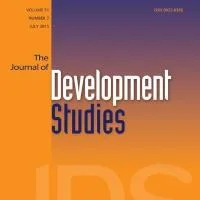
New paper investigates the effect of global governance mechanisms on land investments in Uganda
20 October 2021
Throughout the last decade, the international donor community has developed numerous regulatory initiatives for responsible agricultural investments, but whether these guidelines prevent conflict and protect local rights remains unclear. A new paper from the FLIA's Centre for Public Authority and International Development uncovers how these guidelines work in practice, exploring the land tenure regimes that shape investments.
Based on eights months' fieldwork in Uganda, Carolin Dieterle's research in the Journal of Development Studiescompares three cases of large-scale land investments in different settings. The results suggest that variations in underlying land tenure systems determines the variation, uneven applicability and effectiveness of global governance mechanisms.

New research published on COVID-19 information dissemination among Ugandan health workers
8 October 2021
Health workers at the sub-national level are often on the frontline of disseminating information about COVID-19 to communities. To ensure communities are receiving timely and accurate information, it is vital health workers are kept abreast of the most recent recommendations and guidance.
To understand how information and evidence about COVID-19 is engaged at the subnational level in Uganda, FLIA researchers conducted an electronic survey among health workers in the Ugandan health system. The research, published in BMC Heath Service Research, finds that understanding the sources of information used by health workers can support the transfer of timely information, which in turn increases the use of time- and place-specific information by the Ugandan population.
Learn more about the research.

FLIA seeking new Programme Officer for the Programme for African Leadership
1 October 2021
The FLIA is seeking a full-time Programme Officer to support the Programme for African Leadership at LSE. The programme supports African students to become value-driven and effective leaders through structured activities and events, while building an alumni network whose members are committed to having a direct and positive impact in African communities.
The successful candidate will be an exceptional community builder and support the PfAL Programme Manager in co-ordinating a wide range of operational and developmental activities, with a focus on communications, administrative duties, event planning and pastoral care. A key aspect of this role will involve cultivating positive relationships with stakeholders such as students, alumni, donors and faculty, ensuring a high quality of service at all times.
Visit here for further information.
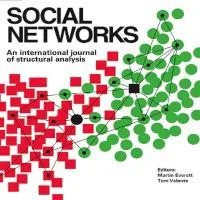
New publication on social network data collection in the DRC
26 August 2021
Data collection in social network research has advanced to include online questionnaires, digital metadata mining and the use of remote-sensing technologies. Some scholars, however, call for more attention on nuanced understandings of social structures and fieldwork practice. A new publication in Social Networks, based on research at the Centre for Public Authority and International Development, assess the implementation of two network research studies in conflict-affected DRC, where mixed method methodologies were used in data collection and analysis.
The paper foregrounds the interdependence between trust and data quality in unstable and insecure environments, which has implications for all social network research involving precarious contexts or sensitive topics.

CPAID publishes 2021 Report
25 August 2021
The FLIA's Centre for Public Authority and International Development(CPAID) has published a comprehensive report of its long-term research and engagement in Africa. Charting the Centre's growth since 2017 to the present, the report presents complete and ongoing research projects, fieldwork findings, policy impact, publications, long-term partnerships, knowledge exchange initiatives and a vision of the Centre's future.

New research published on occult economies and spirituality in South Sudan
17 August 2021
FLIA researcher Dr Ryan O'Byrne has published an account of meeting an evangelical South Sudanese pastor, who described an alternate demonic reality based on personal experience. Recounting the pastor's autobiography in the Journal of Religion in Africa, the paper presents cosmic flows of persons, power and wealth between times and dimensions, which builds on occult economies literature by highlighting concerns material, economic and spiritual at local and global levels.
Drawing attention to attempts in academic analyses to interpret the diverse complexity of religious experience, the paper questions the scholarly interrogation into spiritual meaningfulness itself and the way such research can be an epistemic incursion.

New working paper and policy brief published on household coping strategies in Goma, DRC
29 July 2021
A new working paperfrom the project Going with or against the Flowexamines the experiences of researchers designing and implementing an experimental methodology to study households’ socioeconomic coping mechanisms in insecure, unstable or conflict-affected contexts. The method combined longitudinal household diaries with social network research to collect data on how 24 households in Goma, DRC manage unexpected shocks.
Based on the research, a policy briefoutlines clear areas of attention for policymakers seeking to build community resilience and decrease financial uncertainity within the region. Exploring the implementation of the IMAGINE programme for eastern DRC, which aims to reduce diarrhoea rates through improved access to water and sanitation, the brief evaluates the impact on stable water provision and the effectiveness of the public-private partnership model for water governance.
Learn more about the research.
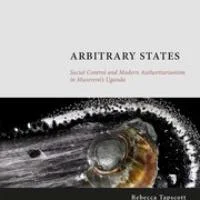
CPAID launches new book on modern authoritarianism in Museveni's Uganda
22 July 2021
A new bookdraws on long-term research to investigate social control in contemporary Uganda, bringing together literature on modern authoritarianism and the post-colonial African state to explain the relationship between state institutions and enforcement. Written by Research Fellow Dr Rebecca Tapscott at the LSE Centre for Public Authority and International Development, "Arbitrary States" explores the micro-dynamics of public authority and governance through the activities of Uganda's vigilantes, militias and community police, developing a framework of "institutionalised arbitrariness".
The book analyses hundreds of interviews and non-participant observation of local security arrangements in Uganda, which uncovers how unpredictable state interventions can destabilise the societal organisation needed to hold rulers accountable, while leaving democratic institutions formally intact.

New report on a African Continental Free Trade Area
20 July 2021
A new report by the Firoz Lalji Institute for Africa summarises a roundtable discussion on the African Continental Free Trade Area and its opportunities created for global trade. The roundtable hosted high-level attendees from the US and UK governments, the EU Commission, the UN Commission for Africa and the AfCFTA Secretariat.
Highlighting six key areas relevant to international trade actors, the report details emerging challenges as the agreement proceeds into ratification, including investment potential, political instability, ODA cuts and support for trade facilitation reforms. The roundtable was organised in partnership with the FLIA's African Trade Policy Programme, the APPG for Africa, the APPG Trade Out of Poverty and the Royal African Society.
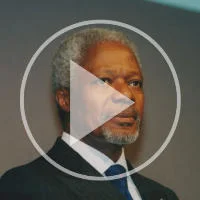
Unpacking LSE's history with Africa
8 July 2021
To celebrate its launch, the FLIA has produced a short video reflecting on the decades of continued engagement between LSE and Africa. Dating back to the School’s foundations in 1895 when many staff and students took a strongly anti-colonial line, a number of LSE alumni have later become renowned African presidents, and LSE has welcomed esteemed figures such as Nelson Mandela and Kofi Annan to deliver keynote addresses on African issues.
Learn about LSE's history with Africa.
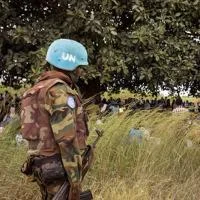
A new report explores law and justice during war in South Sudan
6 July 2021
Times of war are often considered chaotic and, therefore, devoid of law and order, and numerous violent deaths and widespread displacement can appear the essence of lawlessness. Dr Naomi Pendle's research at the Safety of Strangersproject, hosted by the Centre for Public Authority and International Development, challenges these assumptions in the context of South Sudan, drawing from recent scholarship questioning whether the rule of law is necessarily benign.
Using a public authority lens, a new report explores the politics of legal institutions in Unity and Lakes States during recent years of war and peace. Research findings promote discussions about the conditions in which law promotes safety and security and how people use law during war as a mechanism for protection.
Learn more and read the report.

A new report documents local authority and NGO responses to COVID-19 in South Sudan
25 June 2021
A new report documents findings from a research projectinvestigating understandings of COVID-19 and public health in South Sudan, as well as the way that COVID-19 has interacted with the struggles and strategies of local and national NGOs and local government.
Drawing on ethnographic and qualitative research in sites across South Sudan, the team conducted consultations with nearly 100 people in urban and rural areas working for local and national NGOs, as well as local communities, authorities and former staff.
Learn more and read the report.

CPAID research sets a major precedent for international humanitarian law
24 June 2021
Research at the FLIA's Centre for Public Authority and International Development has had a significant impact on a landmark trial at the International Criminal Court, based on anthropological work on cultural understandings of sexual wrongdoing and its relation to international humanitarian law.
While expanding the charges against former LRA commander Dominic Ongwen, CPAID research contributed to a successful prosecution in 2021 by allowing victims of sexual violence to provide witness testimony before the trial started from Uganda. This sets a ground-breaking precedent in the ability to prosecute international crimes of a sexual nature and, should the precedent be applied more broadly, will ease the prosecution of crimes of sexual violence in both domestic and international jurisdictions.
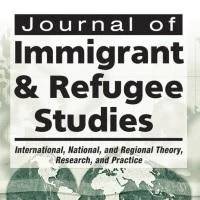
New research published on the marriage customs of South Sudanese refugees in New Zealand
22 June 2021
Focussed on a refugee community of Acholi South Sudanese in New Zealand, new research shows the importance of maintaining cultural practices to sustain social networks and keep families connected to their histories and culture.
Published in the Journal of Immigrant and Refugee Studies, CPAID researcher Dr Ryan O’Byrne describes how an Acholi community negotiates between a sense of belonging to their host country and to their country of origin, understood as a defining feature of the early resettlement period.

Video now available from the event "COVID-19: Africa’s Vaccine Challenge"
21 June 2021
This insightful event explored vaccine access and distribution health policies employed to combat COVID-19 across Africa.
Leading experts discussed what vaccine equity and heath technology means for global management of the pandemic, and what challenges remain for health systems as the vaccine rollout is operationalised.
Outside of challenges, the event also highlighted regional African coordination initiatives and best practices from the region.
Visit here for the full video.
Video now available on the humanitarian crisis in Tigray, Ethiopia
17 June 2021
This event took a poignant look at the humanitarian crisis in Tigray, Ethiopia – a grave, urgent and often under-reported emergency. Seeking to understand the ongoing situation, the event invited a discussion between humanitarian researchers and journalists covering events on the ground.
Speakers Alex de Waal, Temrat Gebregiorgis, Tsedale Lemma and Tamerat Negera provided a broad overview of events, before unpacking compositional elements and offering solutions to bring an end to the crisis.
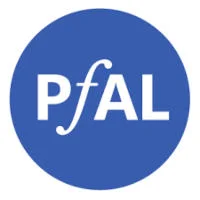
PfAL Graduation
16 June 2021
The FLIA's Programme for African Leadership(PfAL) celebrated the graduation of the 10th PfAL cohort. Having started their studies at LSE under extraordinary circumstances, the 10th cohort of students showed remarkable resilience and teamwork when faced with an entire year of programmes delivered online.The day itself involved speeches and reflections by members of the PfAL community and finished with a note of thanks from the PfAL team, including from a founder of the Programme, Najma Lalji.
View a video of PfAL alumni reflecting on the year.
New article published on the long-term experiences of children returning from the LRA
2 June 2021
A new article from the FLIA seeks to address the lack of information about the longer term day-to-day realities of children returning "home" from rebel fighting groups. Presenting findings based on hundreds of interviews between 2013-16, the articleis the first long-term assessment of the social and economic challenges facing an officially registered group of children who spent time with the Lord’s Resistance Army in Uganda.
Published in Conflict and Health, the research results from collaborative work at the FLIA's Centre for Public Authority and International Development, the project and RECAPat the London School of Hygiene and Tropical Medicine.
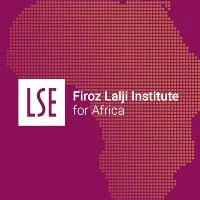
Launching the Firoz Lalji Institute for Africa
1 June 2021
We are pleased to announce exciting news that after five years of rapid growth, and ever-expanding programmes, the Firoz Lalji Centre has now become the Firoz Lalji Institute for Africa (FLIA). Our transition to an Institute is a crucial new phase that will strengthen LSE’s long-term commitment to placing Africa at the heart of understandings and debates on global issues.
As an Institute, our research, teaching, evidence-based policymaking and engagementinternationally will continue, while new projects will create more ways for people to collaborate and become involved with our work. Read about our latest events, publications, artwork and achievements, and stay tuned for more announcements over the coming year.Read a summary of the Institute's programmes.

Video available for The Future of Fieldwork in a Post-Pandemic World
5 May 2021
In this recorded seminarwe explore COVID-19's impact on longstanding questions of inequalities, transnational cooperation and ethical research collaboration. Taken from the event "The Future of Fieldwork in a post-Pandemic World", speakers from South Africa, Uganda, Sierra Leone, Kenya and the UK ask whether and how COVID-19 has fundamentally transformed research practice in Africa.
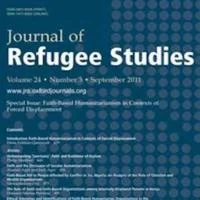
Special CPAID issue in the Journal of Refugee Studies
28 April 2021
Researchers at the Centre for Public Authority and International Developmenthave edited a special issue in the Journal of Refugee Studies, which investigates the complex dynamics of displacement and "return" in Central and East Africa. Featuring 17 researchers from the CPAID network, and drawing on ongoing work into the "life cycles" of conflict, issue editors Dr Anna Macdonald and Dr Holly Porter introduce the articles and reflect on the state of scholarship on "return".
With a particular focus on the Democratic Republic of Congo, South Sudan and Uganda, the issue uses long-term ethnographic data to increase our understanding of internally displaced person, refugee and combatant return dynamics. In doing so, it explores the ways in which return shapes governance and public authority across diverse settings.
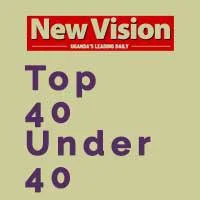
Programme for African Leadership alumni among Uganda’s top 40 under 40
30 March 2021
Aaron Kirunda, alumni of the FLCA's Programme for African Leadership, has made the list of Uganda’s Sunday Vision Top 40 Under 40. The list recognises exceptional leaders who act as a beacon to their peers and whose work has led to positive social and economic impact in their communities.
Kirunda received recognition for his project Enjubathat has pursued excellent work in Uganda's education sector. Enjuba is a children’s education organisation focussed on improving learning outcomes and developing 21st-century life skills such as critical thinking, collaboration and communication through teacher training.

New publication examines demonic stagecraft in African public authority
18 March 2021
Dr Paul Richards at the FLCA’s Centre of Public Authority and International Developmenthas published a new article examining mythic creativity in the politics of late nineteenth-century Sierra Leone, which exemplifies a stagecraft often implicit in African public authority.
Based on ethnographic fieldwork, the article addresses the ways in which public authority played out through cults of secrecy during a period of insecurity in British Sherbo, a small part of precolonial West Africa.
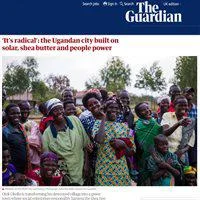
PfAL graduate featured in the Guardian transforming his war-affected village into a green town in Northern Uganda
9 March 2021
Programme for African Leadershipalumni Ojok Okello is using green energy and natural resources to transform his village of Okere Mom-kok into a thriving and sustainable town. As featured in the Guardian, the 200 hectares local community-led Okere City project in northern Uganda is a brainchild of Okello’s social enterprise, which features a school, health clinic, village, bank and community centre.
Okello is an LSE graduate who developed his skills on the FLCA’s Programme for African Leadership, an extra-curricular programme focused on leadership development and networking that provides an opportunity for African students to reflect on their development as future leaders of African organisations and communities.
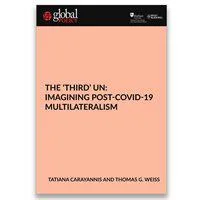
New article addresses the role of non-state actors in global governance
8 March 2021
Dr Tatiana Carayannis at the FLCA’s Centre of Public Authority and International Developmenthas published a new article addressing the need to reimagine and redesign the United Nations during and after the COVID-19 era.
The article, co-authored with Dr Thomas G. Weiss, argues that the reimagining of the contemporary global governance model will come from "the third UN" – an ecology of non-state actors that are closely associated with but not formally a part of the UN. The authors also suggest key policy implications based on their findings.
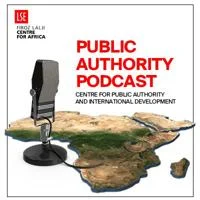
CPAID launches the Public Authority Podcast
2 March 2021
The FLCA's Centre for Public Authority and International Development has launched the first two episodes of the Public Authority Podcast. The series will engage with experts to discuss how public authority interacts with aid delivery, development initiatives, localisation, access to justice and service provision across Africa.
The new episodes highlight the localisation of humanitarian aid as well as the historical and political dynamics of the NGO sector in conflict-affected South Sudan. The speakers introduce the "localisation agenda" in international development and examine how South Sudanese NGOs deal with the challenges of security risks, funding security and negotiations with donors and international aid agencies.
Listen to the podcast and learn more.
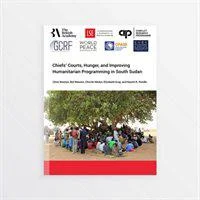
New report examines the role of hunger courts in the management of famine in South Sudan
1 March 2021
The FLCA's Centre for Public Authority and International Development has released a new report addressing the politics of hunger courts in South Sudan. A team of researchers led by Dr Naomi Pendle explores the socio-legal construction of norms surrounding welfare and dignity, as well as social hierarchies and inequities in South Sudan.
The report draws upon household survey data from four sites in South Sudan and demonstrates that humanitarian engagement with hunger courts and similar institutions could ensure a timelier and more effective response to worsening food insecurity.

CPAID comic addresses the fragility of public authority in Palabek refugee settlement
19 February 2021
A Poisoning in Palabek' forms part of a series of six comics on public authority in different countries across Africa. Charity Atukunda’s illustration builds on 12 months’ ethnographic study conducted by Dr Ryan Joseph O'Byrne and Charles Ogeno at the FLCA'sCentre for Public Authority and International Development.
The comic draws inspiration from real-life events, asking the question: what happens when refugee communities and those who are tasked with protecting them have differing opinions about what constitutes a threat?
Learn about the research and view the comic.

CPAID publishes research in the Journal of Refugee Studies
18 February 2021
A paper titled Pragmatic Mobilities and Uncertain Lives has been published in the Journal of Refugee Studies. Grounded in 12 months of ethnographic fieldwork, Dr Ryan Joseph O'Byrne and Charles Ogeno at the FLCA's Centre for Public Authority and International Developmentinvestigate the pragmatic, everyday journeys of South Sudanese refugees in northern Uganda’s Palabek Refugee Settlement through a mobility-focused analytical lens.
The study demonstrates that the complex interactions between refugees from South Sudan and Uganda have important implications for how displacement-based mobilities are conceptualised and understood.

FLCA announces Africa Dissertation Prize winners
10 February 2021
The Firoz Lalji Centre for Africa is pleased to announce the winners of the 2019/20 Africa Dissertation Prize, which is awarded to the year's most innovative and significant Master’s dissertation furthering our understanding of the continent.
This year the prize has been granted to four students across LSE departments in the categories of Innovative Research Techniques, Outstanding Dissertation and Contribution to Decolonising the Curriculum. Join us in offering our congratulations to Kristophina Shilongo, Simon Marcus, Naoki Fujioka and Isabel Paolini!
Learn about the LSE Africa Dissertation Prize.

Decolonising the global publishing industry video available
28 January 2021
The FLCA launched its first event in the series "", addressing emerging ideas in decolonial theory and practice in collaboration with the LSE Eden Centre.
Discussing the potential for new publishing models to overturn the dominance of Global North research, the first event addressed support for non-Western languages, Global South journals and the values underpinning the types of work considered "publishable".

FLCA launches the Decolonisation Hub
27 January 2021
The Firoz Lalji Centre for Africa has launched the , a platform to address anti-racism and decolonisation in higher education.
By collaborating and supporting colleagues across LSE, the hub will host resources, publications, events and updates related to decolonial initiatives across LSE and organisations worldwide. On the hub, the FLCA has also published commitments on its own decolonisation practices, which will be updated throughout the year.
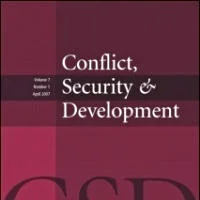
New paper from CPAID critiques notions of monetised politics in South Sudan
18 January 2021
Dr Naomi Pendle in the FLCA's Centre for Public Authority and International Developmenthas published a paper critiquing explanations of South Sudan’s armed conflicts since 2013. Presented in Conflict, Security & Development, her research argues that these explanations have relied on over-simplified theories of identity or monetised politics, which ignore the ways warring coalitions have mobilised support using divergent ideas of political communities and the role of money in defining relationships.
Specifically, the paper addresses how some political communities have faced moral condemnation for their apparent willingness to form alliances in exchange for money. The emerging derogatory term "Nuer weu" ("Nuer of Dinka money") is explored among the South Sudan armed opposition.

FLCA partners with the African Academy of Sciences to promote research engagement
20 November 2020
The FLCA has joined an exciting new initiativeto increase engagement with higher education institutions on the African continent. In partnership with the African Academy of Sciences (AAS), the FLCA will develop projects that increase capacity, improve efficiency and promote knowledge production among participating institutions.
Part of a team with LSE’s Research and Innovation Division, the FLCA will help establish a common understanding of tracking tools used in the UK and Zimbabwe during a research project’s pre-award period, working with six other institutions to foster in-person knowledge exchange and deepen collaborations with the region.
Learn more about the initiative and the FLCA’s work.
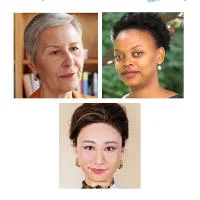
Video online for "China in Africa" lecture attended by FLCA Fellow
19 November 2020
FLCA Fellow Dr Shirley Yu spoke at the Cutting Edge Issues in Developmentlecture series event "China in Africa", addressing whether China undertakes "debt trap diplomacy" – strategically entrapping nations into enormous debt to gain leverage and obtain resources.
Highlighting China’s shift from the world’s factory to the world’s key global market, Dr Yu spoke to Africa's potential to benefit from its emerging economic status. Rather than China’s lending to African nations, it is increasingly its foreign direct investment and digital infrastructure that will provide Africa the opportunity to develop in the 21st century.

New research published on magistrates' courts in South Africa and Uganda
17 November 2020
Drawing on empirical research in South Africa and Uganda, a new studyinvestigates how citizens interact with state justice systems in areas of contested statehood. In the journal African Affairs, Dr Anna Macdonald at the FLCA's Centre for Public Authority and International Development calls into question previous research into non-state forms of dispute resolution.
The research demonstrates how citizen engagement with lower state courts can provide crucial insights into an emerging puzzle across the continent: why engagement with rule of law institutions is regularly sought in contexts where people are deeply critical of the state.
Read the full paper in African Affairs.
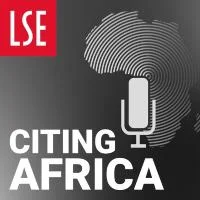
Citing Africa podcast series two launched
16 November 2020
The FLCA has launched series two of the Citing Africa podcast, exploring the ways ideas and biases become hegemonic within international organisations working in African countries. Focussed on how knowledge and technology shape economic and social development, expert speakers discuss topics ranging from how data is used in African countries to how neglected tropical diseases became a global health issue.
Citing Africa investigates knowledge production about and from the African continent. The podcast addresses the structural factors shaping the type of information we value and what this means for debates on decolonisation.
Listen to the podcast and learn more.

New paper published on militarised masculinities in Uganda
4 November 2020
FLCA Fellow Rebecca Tapscott has published in International Affairs on the significance of "militarised masculinities" among Africa's authoritarian strongmen rulers.
Focussed on Museveni's government in Uganda, the new article seeks to understand how national-level authoritarian power reaches ordinary citizens, in which the governing power exercises a "paradox of restraint" and enacts reforms within the rule of law.

Programme for African Leadership Online Forum
30 October 2020
The FLCA's Programme for African Leadership (PfAL) hosted its first digital biennial Forum, bringing together the incredible talent of its network from across the continent.
Presentations and panel discussions by PfAL alumni on Africa's future focused on digital trends, the intersection of the private sector, development and tech, and how to address climate change in a post-COVID world.
View a video playlist of Forum highlights.

New CPAID comic addresses public authority and vigilantism
12 October 2020
As part of a series of six comics on public authority in different countries across Africa, Kenyan comic artist Victor Ndula has illustrated cutting-edge research from the Centre for Public Authority and International Development addressing issues of public authority, vigilantism, policing and public justice.
By studying vigilantes in northern Uganda, research by CPAID Fellow Dr Rebecca Tapscott investigates what public authority means for ordinary people. Based on real events, the comic draws on research findings to ask: what happens when a town tries to fight crime using vigilantes?
Learn about the research and view the comic here.
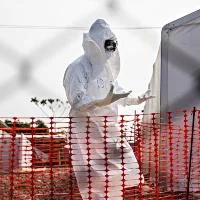
CPAID publishes on COVID-19, public authority and enforcement in South Africa and Uganda
9 October 2020
Researchers at the FLCA's Centre for Public Authority and International Development (CPAID) have published in Medical Anthropologyon the violent enforcement of COVID-19 strategies in South Africa and Uganda.
Research in these countries, by CPAID Investigators Melissa Parker and Grace Akello, builds on earlier work finding that epidemic preparedness and responses can be shaped by geopolitical processes – political and social consequences for others – rather than citizens' health needs.
Read the full open access paper here.

New publication on COVID-19 and public authority
8 October 2020
Most discussion of Africa’s response to COVID-19 takes place at the national level, focussing on the role of formal state authorities. However, less is known about the role of "public authorities".
To explore this gap, researchers at the Centre for Public Authority and International Development have published vignettes of life under, and public authorities’ responses to, the pandemic. Focussing on northern Uganda, South Sudan, the DRC and Sierra Leone, their accounts are now available to download.

Young, Gifted and Black in Academia event
7 October 2020
The FLCA will host a workshop on 20 October for current and prospective Black students, supporting those planning a career in academia or a PhD programme.
The event will see Black doctoral students and academics discuss their experiences navigating academic institutions as minorities.
Register for the workshop here.
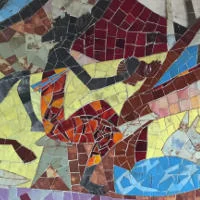
Surviving and Thriving: A Black History Month Artistic Celebration
1 October 2020
On 15 October the FLCA is celebrating the start of the 2020/21 academic year with a public event in partnership with Black artists.
Six artists from across Africa and the African diaspora have been commissioned to showcase their artwork interpreting the concepts of surviving (in quarantine, in hardship, as an "other") and thriving in these spheres during a difficult global period.

FLCA shares milestones in new annual report for 2019/20
27 September 2020
The Firoz Lalji Centre for Africa has published its 2019/20 annual report, charting the impact of ongoing initiatives and new programmes during a period of expansion.
The report covers the continued success of the Programme for African Leadership, research innovation through the Centre for Public Authority and International Development, a high-profile public events programme, the inaugural year of the Africa Engagement Programme, mainstream publicity for the Centre's work, and the Africa at LSEblog.
Read the 2019/20 annual report here.
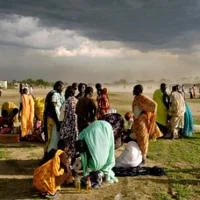
CPAID researcher publishes on the future of relationships in international aid
15 September 2020
International aid plays a contested role in stabilising the global economic order, creating asymmetric power relationships between aid donors and recipients, a challenge to which the global aid system has responded in different ways since WWII, decolonisation and the neo-liberal revolution.
In a new working paper, CPAID researcher Teddy Brett provides a history of aid delivery throughout this period, and its future direction, analysing attempts to reconcile donor-recipient interests and increase aid efficiency.

CPAID publishes research in the Journal of Refugee Studies
9 September 2020
Research from the project has been published in the Journal of Refugee Studies, exploring how displaced peoples reshape constructions of "home" in relation to love and intimate relationships.
Based on ethnographic research over ten years in northern Uganda, following a two-decade-long war, Dr Holly Porter examines movements in relationships between public and private spaces against the backdrop of wider societal movements. In particular, the paper examines the region's spatial moral geography of the camp to home.
Read the full journal article here.

Q&A with FLCA Fellow on the role of communities in global COVID-19 responses
3 September 2020
FLCA fellow Dr Juliet Bedford features in a Q&A for a new Wellcome Trust project addressing the need for communities to be placed at the heart of global pandemic responses.
Writing alongside LSE's Professor Erik Berglof and Professor Devi Sridhar, Dr Bedford stresses the far-reaching and long-term impacts of the COVID-19 pandemic, which needs treating as a social and livelihoods issue as much as health.



